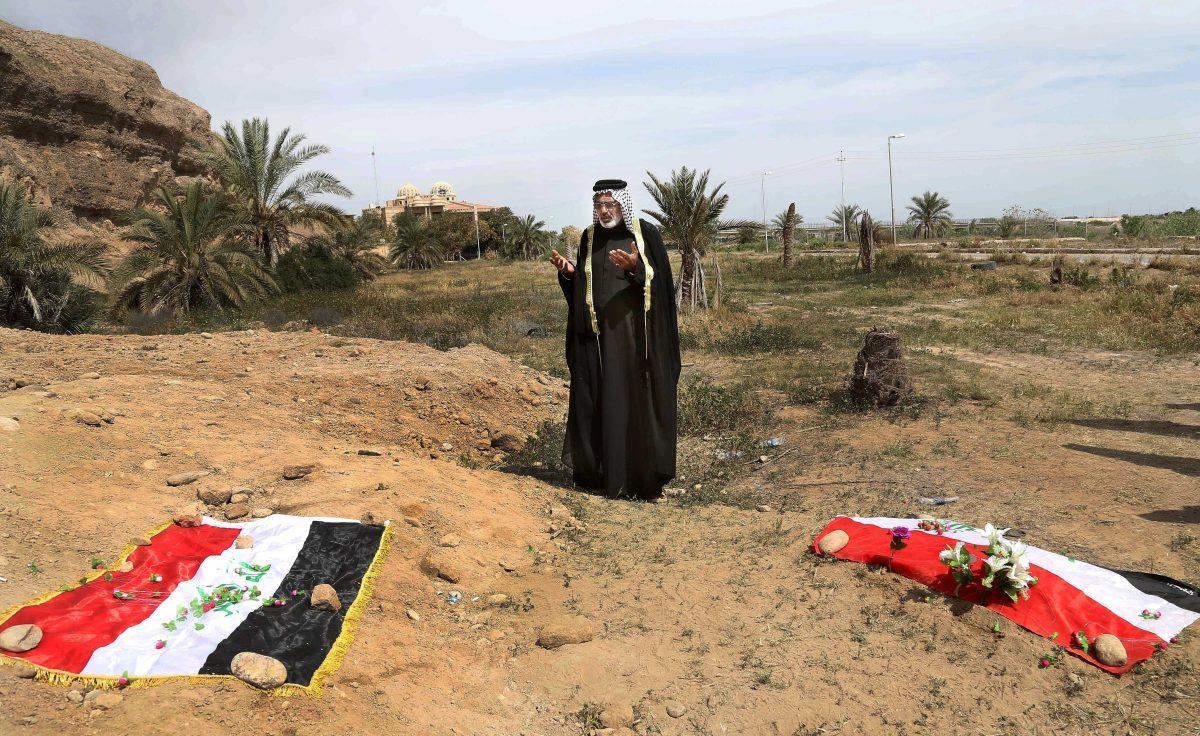Terrorism is one of the greatest fears in our world today. It’s all we see on the news, and it’s only getting worse.
Many of us wonder: Where did this come from? How did we lose control so quickly?
In 2003, America made one of the worst foreign policy decisions in its history. Then-President George W. Bush sent troops into Iraq and overthrew Saddam Hussein’s government. He was unaware the world would still be dealing with the consequences of his actions more than 10 years later.
After Bush dismantled the Iraqi government, hundreds of thousands of Iraqi soldiers, simply peaceful protestors at the time, were suddenly unemployed, angry and without a place to prosper in their own country.
Those same men are the insurgency that teamed up with Al-Qaeda to create the Islamic State of Iraq.
These are the men forgotten by the international community— and they happened to be fully armed and harboring a lot of rage.
Meanwhile, in Syria, Shia Islamists were using chemical weapons and bombs against their Sunni counterparts, leaving death and destruction in their wake.
The Islamic State of Iraq sent men to help the Sunnis fight against Syrian President Bashar al-Assad’s regime, establishing the Islamic State of Iraq in Syria.
Eventually, ISIS became so powerful that it provided infrastructure and supplies for Syrian citizens in the cities it captured. The Syrian government weakened until it was rendered essentially useless, and al-Assad couldn’t kick out the Islamic State fighters because his people needed the support.
It was easy for ISIS to take control of large pieces of the nation because Syrians were struggling and in need while the international community was idly standing by. People were dying, and it was our responsibility to help them.
We failed. ISIS stepped in.
So why can’t we stop ISIS? Why haven’t we stopped it?
ISIS’ goal is to unite the Middle East under Sunni rule, without any nation-state borders, and eventually root out any disbelievers of Islam in the world — and we gave them the arms to do it.
Many Americans don’t care to understand the purpose of a group that is killing their children and threatening their security. Especially since the group claims to be Islamic, and our country has a deep-rooted bias against the Islamic community that dates to before 9/11.
There is an important distinction to be made though: ISIS is not a religious group. It is a terrorist organization.
It does not belong to the peaceful ideology of Islam. The group believes it is doing God’s work and being faithful Muslims, but calling these men Muslims only heightens the group’s ego.
The reason ISIS has become one of the most powerful actors on the world stage is because its proponents live outside our international system.
ISIS doesn’t abide by anyone’s law but its own. It doesn’t have a heart or a conscience, only a goal.
We can’t bomb the group into having empathy for the people it is destroying. We provoked its hatred, and we abandoned its members.
They want what any group of people who have been disenfranchised want: for the world to pay attention. They want power.
We are treating ISIS as if it is any other terrorist group, but this is a new type of threat. These people hold territory, have an expansive and complex military system, are self-funding and control entire infrastructures.
Fighting ISIS without being completely knowledgeable about its roots, goal and psychology will not work. Counterterrorism will not work.
We cannot fight ISIS in a global system it is not a part of. It will continuously have the upper hand.
The truth is, ISIS was born out of another misguided American attempt to improve the world.
The caliphate’s idea of making the world a better place is radically different than ours, but we must recognize its real purpose to create a real solution.
There is no justice in ISIS’ violence or our counterattacks. As Americans and as world leaders, it is our responsibility to understand the repercussions of every action we take and stop assuming we are never in the wrong.
Anjana Nair is an 18-year-old international studies sophomore from Baton Rouge, Louisiana.
OPINION: Understanding ISIS could be key to defeating them
By Anjana Nair
August 30, 2016
FILE – In this April 3, 2015, file photo, an Iraqi man prays for his slain relative at the site of a mass grave believed to contain the bodies of Iraqi soldiers killed by Islamic State group militants when they overran Camp Speicher military base in Tikrit, Iraq, in June 2014. An analysis by The Associated Press has found 72 mass graves left behind by Islamic State extremists in Iraq and Syria, and many more are expected to be discovered as the group loses territory. (AP Photo/Khalid Mohammed, File)





